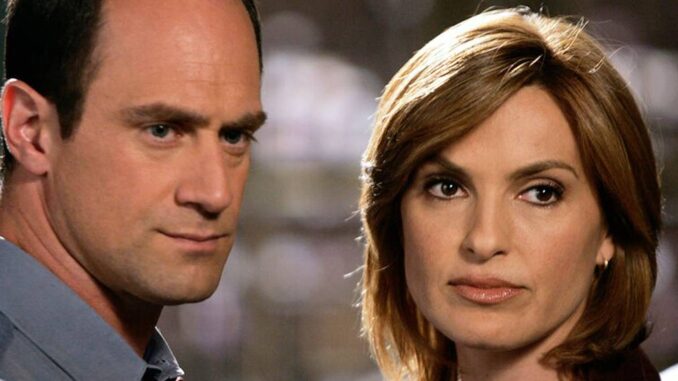
The Seed of Stabler’s Storm: How Benson’s Presence in SVU’s Premiere Sowed the Seeds of His Demise
Law & Order: SVU’s very first episode, “Payback,” isn’t just a procedural drama introducing us to the dark realities of sex crimes. It’s a subtle, almost imperceptible, laying of the groundwork for a complex and ultimately tragic character arc. While the episode focuses on a brutal gang rape and the murky morality of vigilantism, buried within the narrative is the genesis of Detective Elliot Stabler’s biggest problem: his inability to reconcile his deeply entrenched, often violently expressed, protective instincts with the increasingly nuanced and empathetic world he inhabits, a world that is mirrored in and embodied by his partner, Olivia Benson. “Payback” subtly establishes Benson’s presence as the catalyst, the constant push and pull that ultimately contributes to Stabler’s tumultuous departure.
From the outset, the contrast between Stabler and Benson is starkly apparent. Stabler, the seasoned veteran, is a powerhouse of raw aggression, a man whose sense of justice is visceral and often leads him to the edge of ethical boundaries. He views the world in shades of black and white, instinctively reacting with protective rage towards victims and righteous fury towards perpetrators. In “Payback,” this is evident in his interrogation tactics, his simmering anger when confronting the suspects, and his implicit understanding of the vigilante’s motivation. He’s a force to be reckoned with, a shield against the darkness.
Benson, on the other hand, while possessing a fierce dedication to victims, approaches the cases with a more nuanced understanding. She listens intently, connects emotionally, and seeks to understand the underlying motivations and complexities of the individuals involved. She already demonstrates a budding capacity for empathy that extends beyond the binary of victim and perpetrator, foreshadowing her future as a champion of restorative justice. This is subtly highlighted in her interactions with the rape survivor, where she offers a sense of calm and understanding, a different approach than Stabler’s more reactive stance.
This contrasting approach isn’t immediately problematic; in fact, it appears complementary. Stabler’s raw energy pushes the investigation forward, while Benson’s empathy ensures they don’t lose sight of the human cost. But the seed of Stabler’s future troubles lies precisely in this dynamic. Benson’s very presence forces Stabler to confront the limitations of his own rigid worldview. He’s constantly challenged, albeit often unconsciously, to temper his explosive instincts and acknowledge the gray areas that exist within the legal system and the human psyche.
The tension is further amplified by the implied, and later explicitly explored, emotional connection between them. This unspoken bond creates a deeper sense of responsibility, particularly for Stabler, who feels a profound need to protect Benson, the woman who both challenges and complements him. This need to protect her, to shield her from the horrors they witness, intensifies his already existing protective instincts, potentially leading him to overreact and cross lines in the name of justice.
The vigilante subplot in “Payback” serves as a microcosm of Stabler’s internal struggle. He sympathizes with the vigilante’s actions, recognizing the desire to deliver justice outside the confines of a flawed system. This resonates with Stabler’s own tendency to bend the rules, a characteristic that grows increasingly problematic as the series progresses. Benson, while understanding the vigilante’s frustration, ultimately champions the importance of due process and the rule of law. This subtle disagreement sets the stage for future conflicts, where Stabler’s impulse towards immediate justice clashes with Benson’s commitment to a more equitable and nuanced approach.
Ultimately, “Payback” lays the groundwork for a conflict that festers throughout the series. Stabler’s inability to fully adapt to Benson’s more empathetic and nuanced worldview, coupled with his deep-seated need to protect her and the victims they serve, fuels his increasingly erratic behavior. He struggles to reconcile his personal sense of justice with the complexities of the law, leading to instances of excessive force, ethical breaches, and ultimately, a breakdown that forces him to leave SVU.
While Stabler’s personal demons and past traumas undoubtedly contributed to his ultimate struggles, Benson’s presence, established in the very first episode, acts as a consistent catalyst. She represents the evolution of the legal system and the growing societal awareness of the complexities of sex crimes, an evolution that Stabler struggles to fully embrace. “Payback,” therefore, isn’t just a case; it’s a prologue, subtly foreshadowing the storm that Stabler’s relationship with Benson will ultimately unleash, demonstrating how her very presence, intended to be a force for good, unwittingly contributed to his biggest problem. The seeds of Stabler’s demise, nurtured by his unwavering loyalty and a world that was constantly changing, were sown in the very first episode of SVU, with Olivia Benson standing right there, unwittingly watering them.
